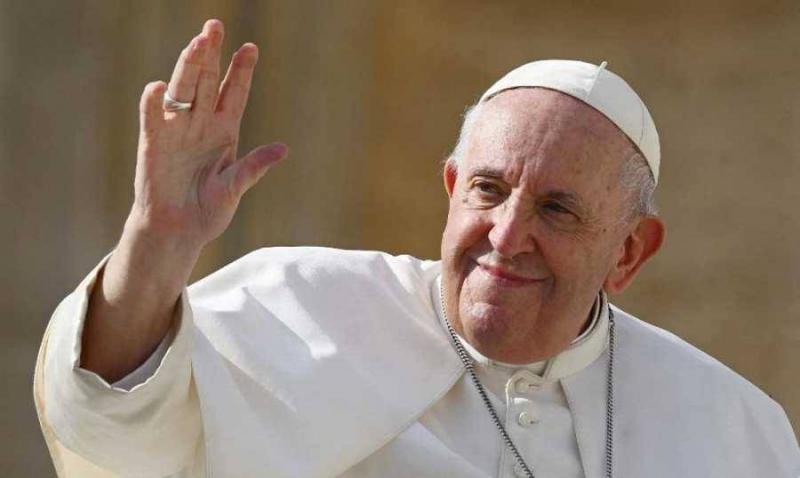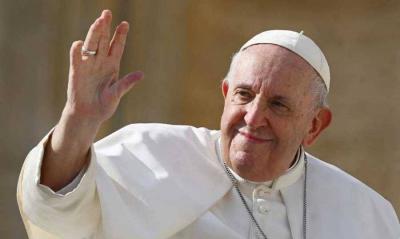Last Sunday, Pope Francis concluded his visit to Bahrain, during which he spent four days delivering several speeches filled with meanings and messages of love and peace. The King of Bahrain described the visit as "historic," which indeed it is. However, there are differing opinions about this. Many historical events only appear significant after years or decades have passed. This might also be the case with the Pope's visits to "Islamic countries" (meaning countries with a Muslim majority). The visit to Bahrain marks his tenth visit to an Islamic country and the seventh to an Arab state (following Jordan, Palestine, Morocco, Egypt, the UAE, and Iraq). All these visits are establishing a new reality in the relationships between Islam and Christianity, as well as between East and West, after a period of conflict, extremism, and terrorism.
Each Pope has a unique characteristic that defines his papacy. The ecclesiastical renewal initiated by the Second Vatican Council marked the papacy of Pope John XXIII. Pope Paul VI was known as the Pope of Modernity. The fall of the Soviet Union and the pastoral visits to various countries characterized the papacy of Saint John Paul II. What defines the current papacy is the development of dialogue and interaction with Islam, along with a focus on the "poor man." It’s important to emphasize the word "development" because the dialogue between the two religions did not start with the current Pope; it is old and has numerous institutions, study centers, and even institutes established for this purpose.
In recent decades, conflict has overshadowed the relationship between East and West, accompanied by a religious extremism that has led to political projects and terrorist military actions. This extremism has been prominent in the Arab world and has led to discussions about "Islamophobia" in the "Christian" West. I would add "Arabophobia" based on my experience as a Lebanese Arab living in the West (although many from my religion and sect do not accept this identity). I started living in France right before the September 11, 2001 attacks, which were orchestrated by Osama bin Laden, who is of Saudi origin, and involved 11 Saudis (out of the 18 perpetrators). I experienced the rise of "Islamophobia" and "Arabophobia" in Europe. The general public often assumed that every Arab is a Muslim, every Muslim is an extremist, and every extremist is a terrorist or a potential terrorist. I recall a time when a teacher at a Catholic school (where I was a priest) asked me, "How can you be Arab and Christian?! Are there Christians in the Arab world?!" This question surprised me for two reasons: first, for the ignorance of the descendants of Napoleon regarding the Arab world, and their lack of awareness about the sectarian composition of Lebanon! The second reason is that the French began to inquire about religious identity! A Lebanese friend had warned me not to ask three questions of a French person: What is the value of their salary? Who do they vote for? Who do they worship?
The importance of the invitations made to the Pope for visiting the Gulf Arab countries lies in their ability to dismantle Western stereotypes about the Islamic and Arab worlds. The visit itself sparked journalists' curiosity to explore the history of Christianity in Bahrain. They traced its existence back to centuries before the rise of Islam. They discovered that the name of the city "Qallali" in the Samahij area of Muharraq Island in Bahrain is derived from the word "cell" (the monk's residence), and that there is a city named "the monk," which has a mosque called "the monk"! They also revisited the Christian presence in the kingdom in modern history, finding that the first church in the Gulf Arab was built there in 1906, namely the Evangelical National Church, and that the first Catholic church in the Gulf was also built there in 1939, known as the Sacred Heart Church. Bahrain is the smallest country in the Gulf hosting the largest cathedral, which is "Our Lady of Arabia."
Pope Francis’s visit to Bahrain holds significant importance in the meeting between East and West, and between Christianity and Islam. It is true that the "Christian" West includes secular countries, but it maintains a Christian background in its history, values, systems, and society. Such encounters show the Western world that Islamic society is not represented solely by Osama bin Laden, Ayman al-Zawahiri, or Abu Bakr al-Baghdadi. Rather, it is represented by figures such as Dr. Ahmed al-Tayeb, the Grand Imam of Al-Azhar, religious authority Ayatollah Ali al-Sistani, and scholar Sayyid Ali al-Amin, among others. These figures represent true Islam, not the Muslim Brotherhood or the mullah regime in Iran, and the Arab world today, through its systems, rulers, and people, rejects extremism and is actively combating it, demonstrating a genuine and steady will for religious, cultural, and civilizational openness.
There are many evidences to support this, the most prominent being:
1. The war launched by the Egyptian regime in cooperation with Al-Azhar against the Muslim Brotherhood, which is the "mother group" of religious extremism in the 20th century.
2. The unprecedented openness policy adopted by several Arab countries, particularly Saudi Arabia. It is not a trivial issue for the status of women to change in the "Wahhabi lands,” for concerts to be organized, cinemas to open, and theatrical performances to be held.
3. Granting licenses for the construction of churches, providing land for them as gifts, and allowing religious practices in Islamic countries, as well as unearthing Christian relics in the Arabian Peninsula, "the heart of Islam." The most recent of these revelations was the announcement of a monastery relic in the UAE dating back to the period between the 6th and 8th centuries, according to the UAE news agency.
In this context came King Hamad bin Isa Al Khalifa's invitation to Pope Francis. There is no doubt that the regime in Bahrain has an interest in securing a place for itself on the map of Islamic-Christian dialogue in the region and the world. This is a project. It may also be an attempt to emphasize that the confrontation with the pro-Iranian Shiite opposition since 2011 is political rather than religious persecution. Every regime seeks to preserve its stability and rejects external interventions. Regardless of Manama's interests, the visit represents a step forward in the process of openness between East and West. Many other steps were raised by the Pope in his speeches in Bahrain, such as democratic governance, religious freedom, "entrenching the concept of full citizenship," and foreign labor, which "violates human dignity."
Yesterday, the Pope was in Bahrain, which represents the geopolitical backyard of the Kingdom of Saudi Arabia, "the center of Islam.” Trips were organized to transport Christian workers from Saudi Arabia to Manama to participate in the mass held on the occasion of the Pope's visit. So will there come a day when Saudi Arabia becomes a destination for the Pope? It may be too early to answer this question. However, the political, religious, economic, and social openness policies being pursued by Riyadh confirm that nothing is impossible.




